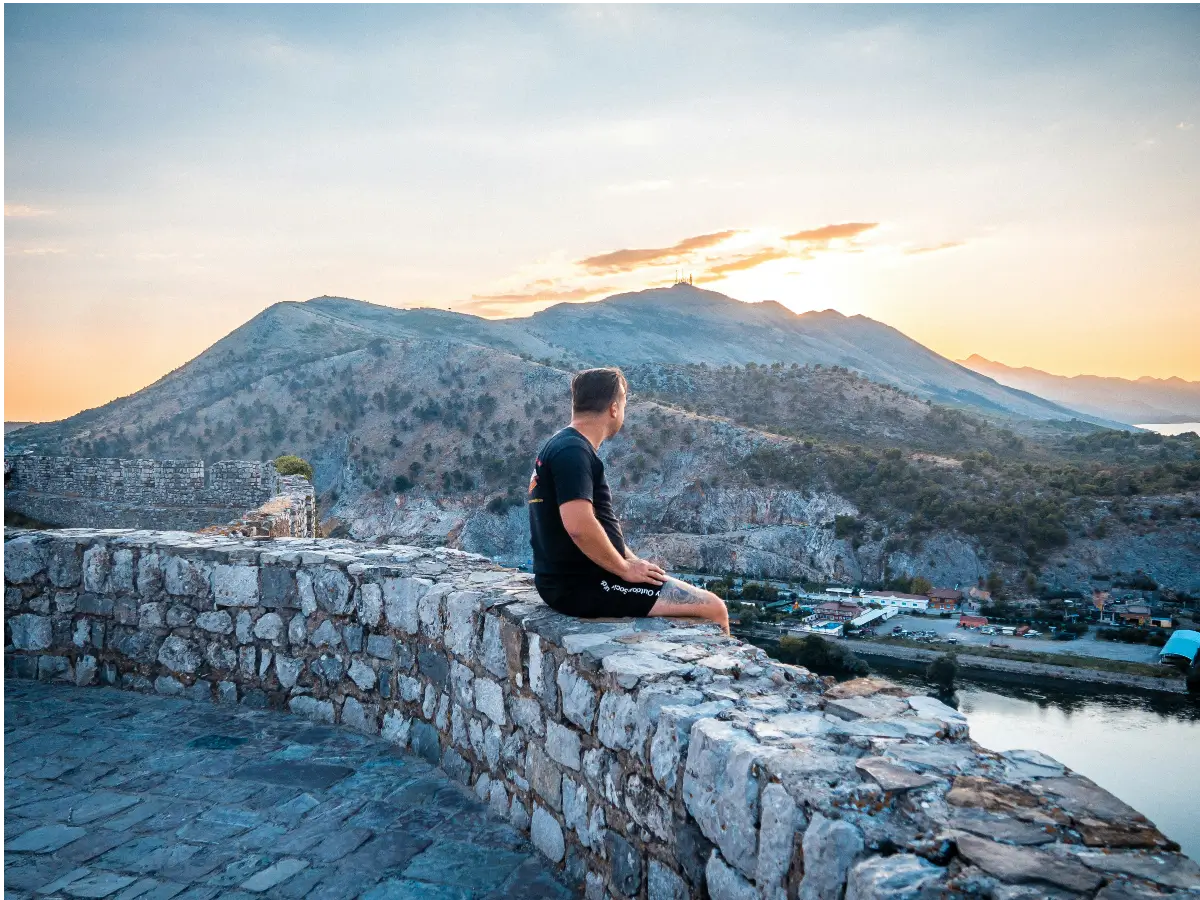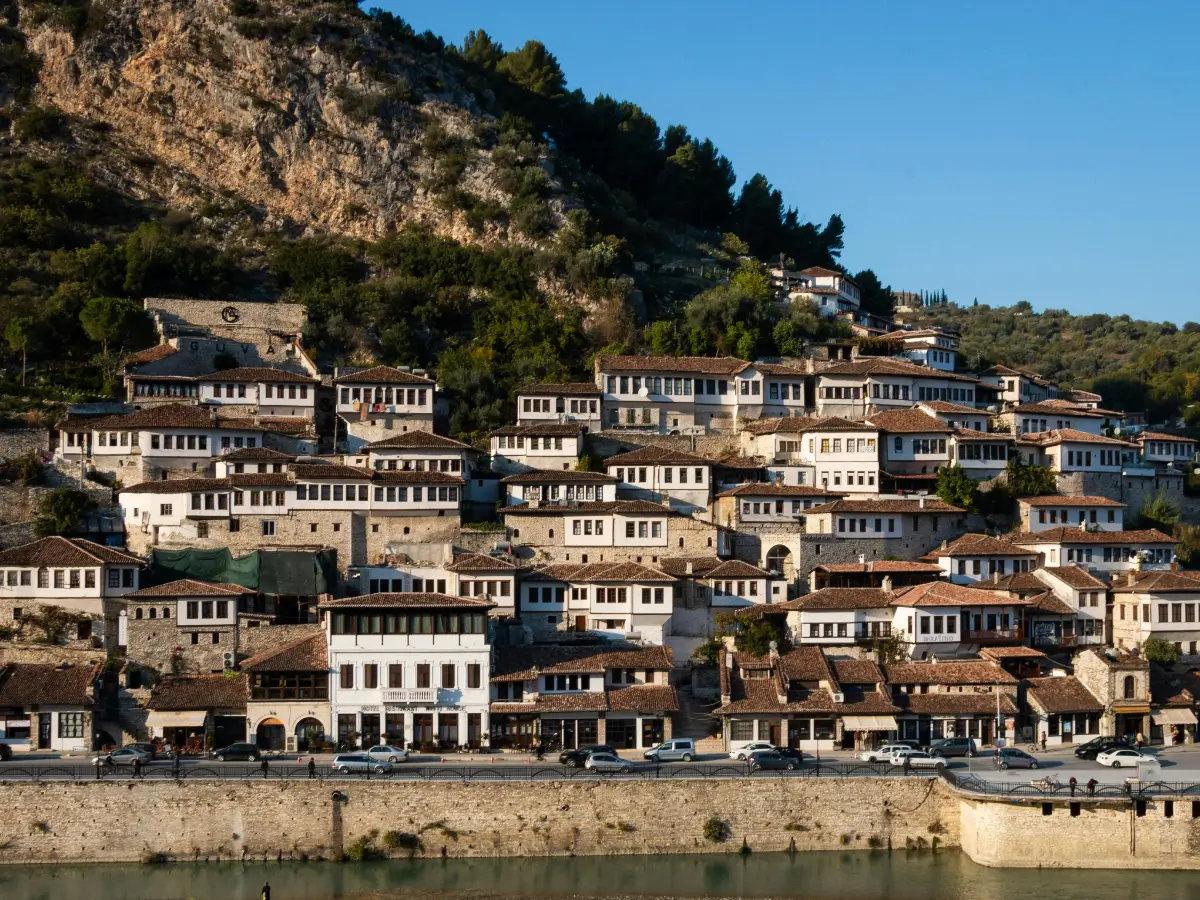The Ottoman Empire ruled Albania from the late 14th century until 1912. Over these four centuries, the empire reshaped the way Albanians built their homes, designed their cities, and practiced daily life. Even today, Ottoman influence remains visible in the architecture of old towns, in certain cultural habits, and in the design of public and religious spaces across the country.

Urban transformation during the Ottoman period
The Ottomans introduced a new urban model to Albanian cities — one centered around religious, commercial, and social structures. Towns that once revolved around castles or local markets were restructured to align with Ottoman civic design. At the core of this layout stood the mosque, surrounded by a bazaar, hammam, fountain, and public gathering space.
This system wasn’t only functional — it shaped how people lived. Homes were built around courtyards for privacy, streets were narrow for shade and protection, and neighborhoods were organized by profession or religion. Ottoman town planning created a sense of order based on communal life, faith, and commerce.
Architectural features introduced under Ottoman rule
In many Albanian cities, Ottoman-style buildings still stand as cultural landmarks. The empire introduced techniques and aesthetics that blended Islamic design with local craftsmanship, creating a uniquely Albanian version of Ottoman architecture.
You’ll still find these characteristics across the country:
-
Domed mosques with slender minarets, often decorated with geometric carvings or painted interiors
-
Arched stone bridges crossing rivers and valleys, built for longevity and trade
-
Traditional homes with overhanging wooden balconies, stone bases, and enclosed courtyards
-
Clock towers used to organize public life and mark prayer times
-
Covered bazaars and caravanserais that once served as commercial hubs
Cities like Berat, Gjirokastër, Elbasan, and Shkodra remain some of the best-preserved examples of Ottoman urban architecture in Albania. In these places, entire neighborhoods reflect the spatial logic and aesthetic of Ottoman city life.
Cultural habits and religious influence
The Ottoman era also left a strong mark on Albanian social customs. Islam became a major religion during this time, and while Albania is secular today, many aspects of daily behavior still reflect that influence.

Religious tolerance, modesty in dress, the use of guest rooms for hospitality, and shared meals served on floor trays are all customs that trace back to the Ottoman domestic lifestyle. Many Albanians still use Turkish-origin words in everyday speech, particularly in cooking, textiles, and housewares.
Sufi orders, especially the Bektashi, became deeply rooted in Albanian spiritual life. These practices remain active and respected, blending mysticism with local tradition in a way that continues to shape regional identity.
Places where the Ottoman past remains alive
Some of the most vivid reminders of Ottoman Albania can be found in specific cities. In Gjirokastër, the steep stone-roofed homes and Ottoman-era bazaar create a museum-like atmosphere. Berat, known for its white-windowed facades, still hosts functioning mosques and historic homes from the 18th and 19th centuries. Shkodra’s mosques and bridges reflect northern adaptations of the same architectural style, while Tirana’s Et’hem Bey Mosque and Clock Tower form a central part of the capital’s heritage.
In many smaller towns, the layout of old quarters — winding alleys, clustered homes, and hidden courtyards — continue to tell the story of an era that shaped Albania not just through rule, but through space, structure, and daily rhythm.